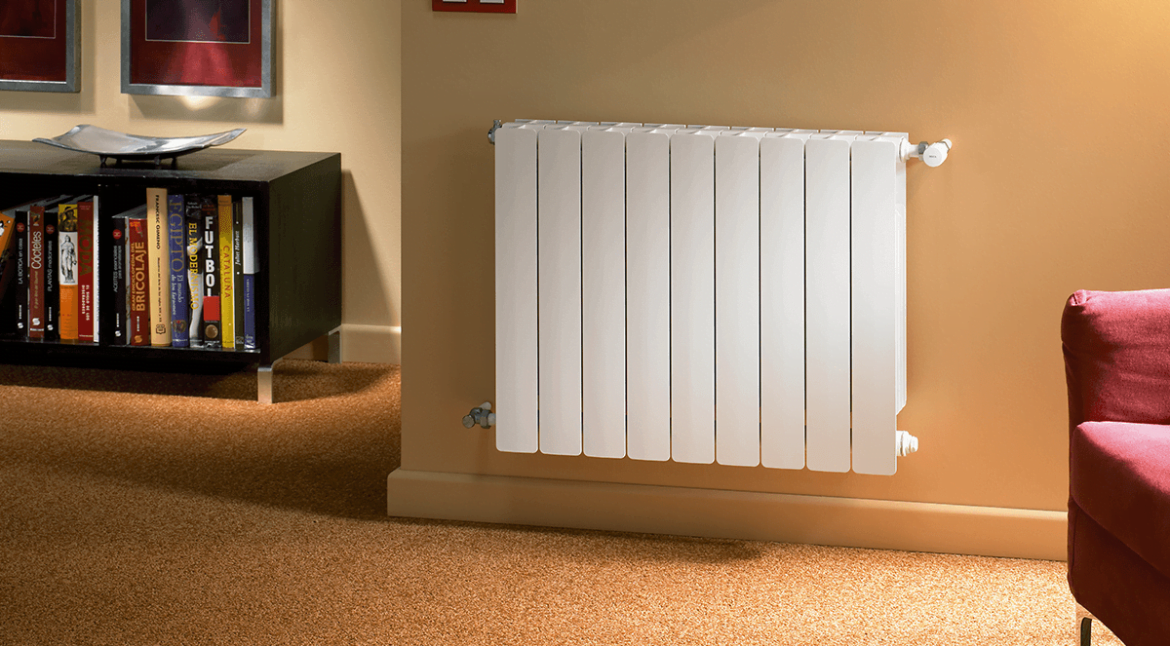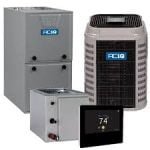Are Furnaces Dangerous? Furnaces are essential appliances that provide heating and comfort to millions of homes in winter. However, furnaces can also pose potential dangers if they are not correctly installed, maintained, or used. Furnaces can cause fire hazards, gas leaks, carbon monoxide poisoning, electric shocks, and poor indoor air quality, which can harm your health and property.
In this blog post, we will explain how furnaces can be dangerous and how to prevent or avoid these risks by following simple tips and best practices.
How Furnaces Can Be Dangerous
Furnaces can be dangerous in different ways, depending on the type, age, and condition of the furnace, as well as the fuel source, the venting system, and the features of the furnace. Here are some of the common dangers that can help you to clarify “Are Furnaces Dangerous” and how you can recognize and avoid them:

Fire Hazards
Furnaces can pose a fire hazard if they are not correctly vented or situated near flammable materials. Furnaces generate hot exhaust gases that must be safely discharged outside through a flue or pipe. If the ventilation system is damaged, blocked, or incompatible with the furnace, the exhaust gases may accumulate and ignite, resulting in a fire or an explosion.
Also, furnaces can cause fire hazards if they are near combustible items, such as gasoline, paints, clothing, or paper. These items can easily catch fire if they come into contact with the furnace or the venting system.
To prevent fire hazards, you should:
- Regularly check your venting system and gas furnace for leaks. Use soap and water or a gas detector. If you detect gas, turn off the valve, open windows, and contact a professional technician or your utility company immediately.
- Keep flammable items 3 ft away from the furnace and venting. Store them in different rooms. Use a metal cabinet or fire-resistant container.
- Make sure to install smoke alarms and fire extinguishers, test them regularly, and create and practice an escape plan with your family.
Gas Leaks
Gas leaks can happen when the gas pipes or valves of the furnace get damaged, corrupted, or loose. These leaks can pose a serious threat as they are highly flammable and can cause fire or explosion if they come in contact with an ignition source like a spark, flame, or cigarette.
Additionally, gas leaks can lead to suffocation or asphyxiation as gas can displace oxygen. Detecting gas leaks can be difficult as gas is colorless and odorless. However, gas companies add a harmless chemical called mercaptan to give gas an easily recognizable rotten egg smell to help identify a gas leak.
To prevent gas leaks, you should:
- Have your gas furnace inspected and serviced by a licensed technician at least once a year. A professional technician can check the gas pipes, valves, burners, and heat exchangers for any signs of damage or wear and tear and repair or replace them if needed.
- Install a gas detector in your home, test it regularly, and follow the manufacturer’s instructions. Place it near the gas appliances, furnace, or meter to detect leaks with an alarm or light.
- If you suspect a gas leak, don’t use electrical devices. Turn off the gas valve, open windows, evacuate, and call a technician from a safe distance.
Carbon Monoxide Poisoning
Carbon monoxide (CO) is a toxic gas that can be produced by any fuel-burning appliance, including furnaces. It is a dangerous gas because it can bind to the hemoglobin in your blood and prevent it from carrying oxygen to your cells and organs. This lack of oxygen can cause various symptoms, such as headaches, dizziness, nausea, fatigue, confusion, and chest pain.
You can also learn more about Gravity Furnace Vs Forced Air
In severe cases, CO can cause unconsciousness, brain damage, or even death. One of the dangers of CO is that it is hard to detect since it is odorless, colorless, and tasteless. However, CO can be prevented by ensuring proper ventilation and maintaining your furnace.
To prevent carbon monoxide poisoning, you should:
- Check your furnace’s venting system regularly for blockages, cracks, or corrosion. Ensure the system discharges exhaust gases without obstruction or leakage. For gas furnaces, check the flame color and pilot light. Blue and steady flames and an on-pilot light are good. Yellow or flickering flames or an off-pilot light could mean incomplete combustion and CO production.
- Install a carbon monoxide detector, test it regularly, and follow the manufacturer’s instructions. Place it near the furnace, bedrooms, or living areas to be warned of a CO leak by an alarm or flashing light.
- If you suspect CO poisoning symptoms or the detector goes off, turn off the furnace, open windows, leave, seek medical attention, and call 911. Only use the furnace once it is inspected and repaired by a professional technician.
Electric Shocks
Electric shocks can occur if the electrical components of a furnace, such as a blower, thermostat, or wiring, are damaged, exposed, or wet. These shocks can be hazardous as they can cause burns, muscle spasms, heart arrhythmia, or even cardiac arrest. To avoid electric shocks, it is crucial to ensure that the electrical components of the furnace are appropriately insulated and protected.
Don’t forget to learn more about 80 AFUE Vs 96 AFUE:Choose Best Furnace Efficiency
To prevent electric shocks, you should:
- Get your furnace inspected and serviced yearly by a licensed technician to check for damage or wear and tear on electrical components. This ensures safe and efficient operation.
- It is essential to avoid touching or interfering with the electrical components of your furnace, particularly if you lack experience or qualifications. Mishandling these components can lead to the risk of electric shock, so handle them with utmost care. In case of emergency repairs, make sure to turn off the main power before opening the furnace.
- Contact an experienced HVAC professional for both minor and vast repairs. A professional technician can handle the electrical components of the furnace safely and efficiently and prevent any further damage or injury.
Poor Indoor Air Quality
Indoor air quality issues arise from emissions, dust, and contaminants produced or circulated by furnaces. These emissions include particulate matter, nitrogen dioxide, sulfur dioxide, hydrocarbons, carbon monoxide, irritating eyes, nose, throat, and lungs and worsening respiratory conditions like asthma, bronchitis, and allergies.
Furnaces also circulate dust, dirt, pollen, mold, and pet dander, leading to clogged air filters, ducts, and vents. This reduces furnace airflow and efficiency, impacting health and comfort and increasing heating costs.
To improve your indoor air quality, you should:
- Check and change your air filter every 30 days to remove pollutants and allergens and improve airflow and furnace efficiency. Always use the correct filter type and size and follow the manufacturer’s instructions for installation and replacement.
- Keep the area around it clean to ensure your furnace runs smoothly and safely. Remove debris, clutter, and dust that can block or leak the venting system. Regularly vacuum and wipe down the furnace cabinet, blower, and burners to remove dirt and grease.
- Get an in-home air-quality consultation from professional technicians to improve your indoor air. They can recommend solutions like duct cleaning, humidifiers, air purifiers, and smart thermostats to enhance air quality, humidity, and temperature.
Are Furnaces Dangerous? Conclusion
Furnaces are not inherently dangerous but can pose potential risks if not correctly installed, maintained, or used. Furnaces can cause fire hazards, gas leaks, carbon monoxide poisoning, electric shocks, and poor indoor air quality, which can harm your health and property. However, you can prevent these risks by following simple tips and best practices, such as checking your venting system, installing detectors, replacing your air filter, and scheduling regular inspections and services.
Frequently Asked Questions about Are Furnaces Dangerous?
What are the hazards of a furnace?
Here are the most common hazards of the furnace:
- Fire Hazards
- Gas Leaks
- Carbon Monoxide Poisoning
- Electric Shocks
- Poor Indoor Air Quality
Is it safe to have a furnace in the bedroom?
The International Residential Code prohibits furnace installation in a bedroom, closet, or bathroom. The IRC does allow furnace installation in a bedroom closet under the following conditions: You install the furnace in a special room that only opens into the bathroom or bedroom.
Can I leave my furnace on all night?
It is not safe or cost-effective to leave your furnace running during the nighttime, especially if it’s a propane furnace. To keep the house warm, it’s better to turn off the furnace at night and restart it in the morning when you wake up.
Are gas furnaces as bad as gas stoves
Gas furnaces are safer than gas stoves due to better ventilation. However, gas furnaces can still pose risks like fire hazards, gas leaks, carbon monoxide poisoning, and electric shocks. Follow safety tips such as inspecting the venting system, installing detectors, replacing the air filter, and scheduling regular inspections and services to minimize these risks.





